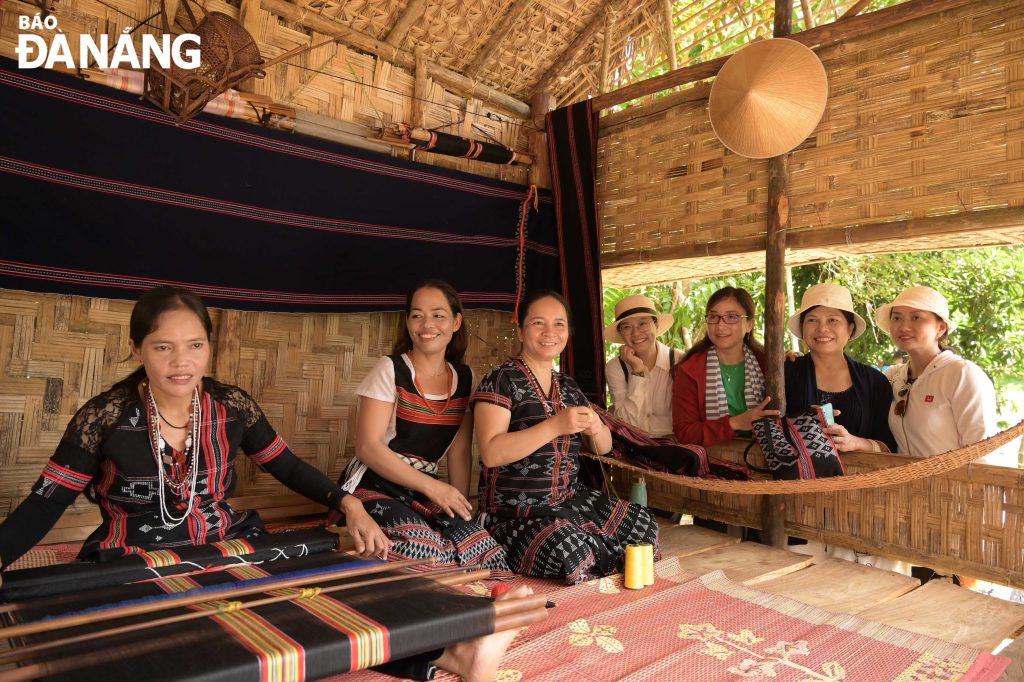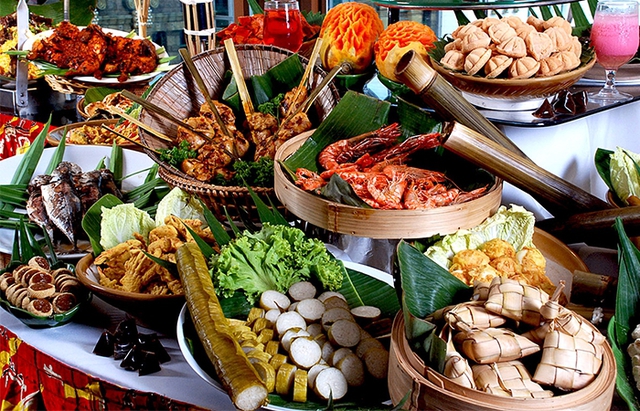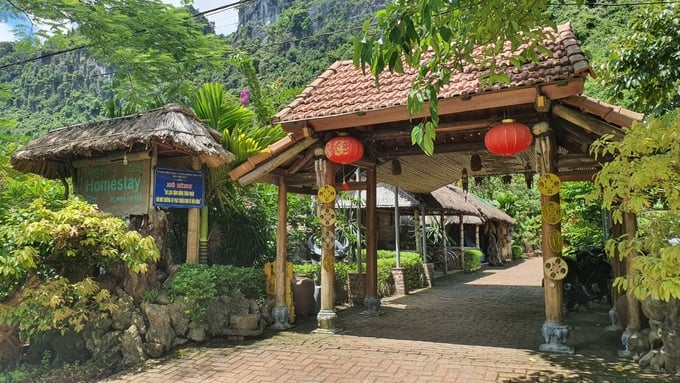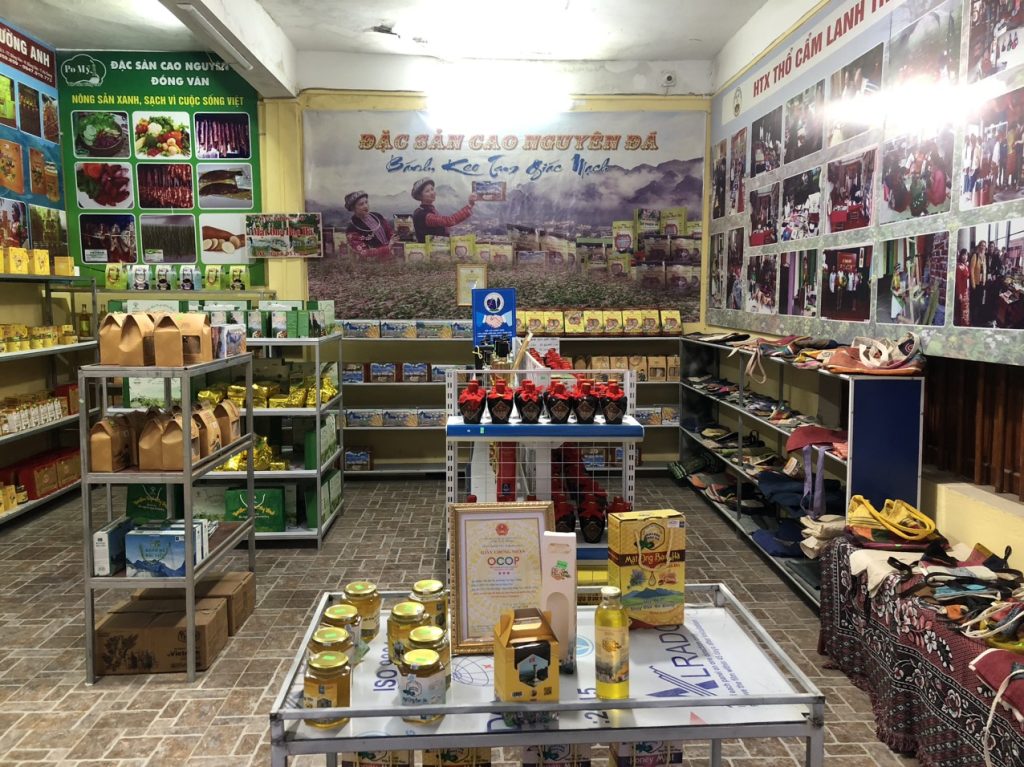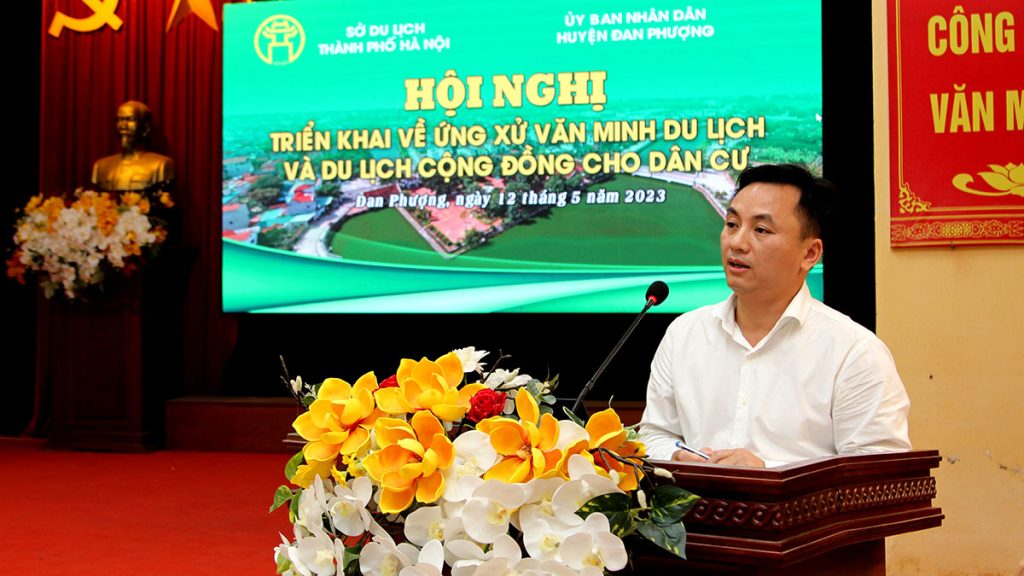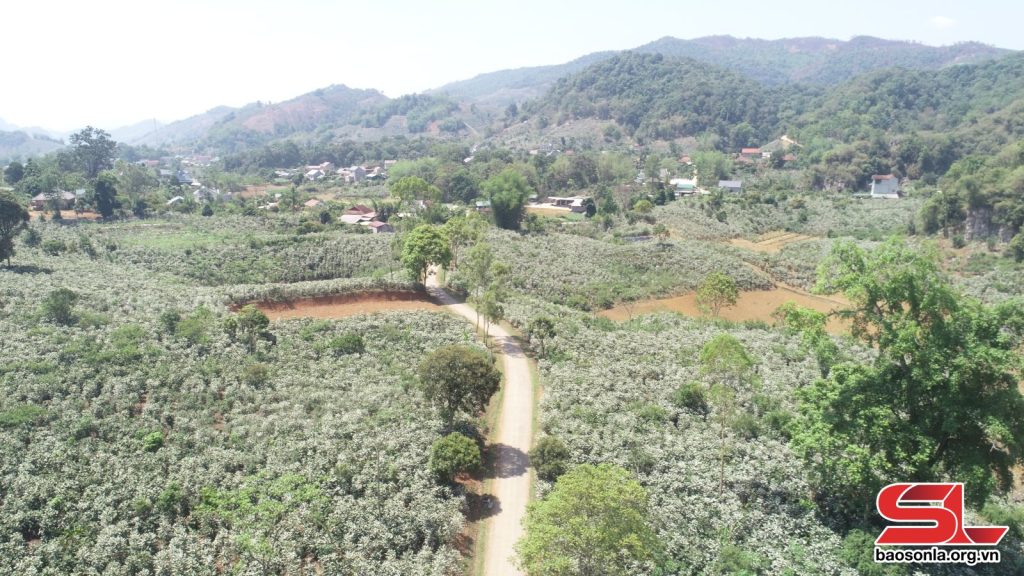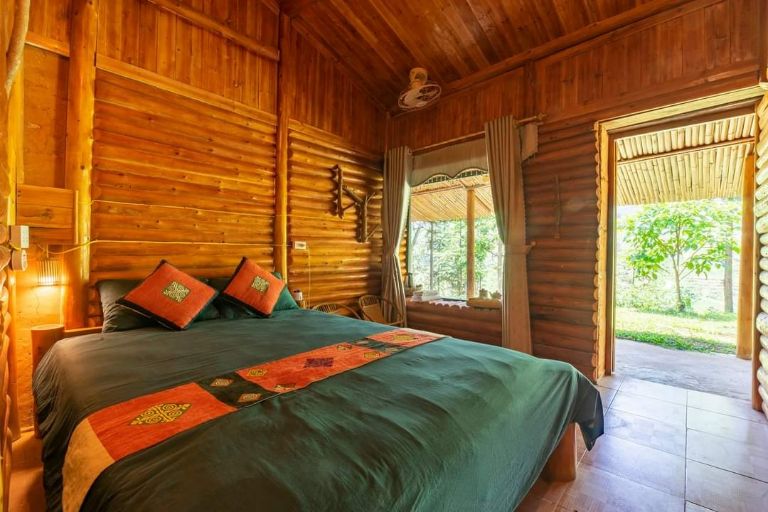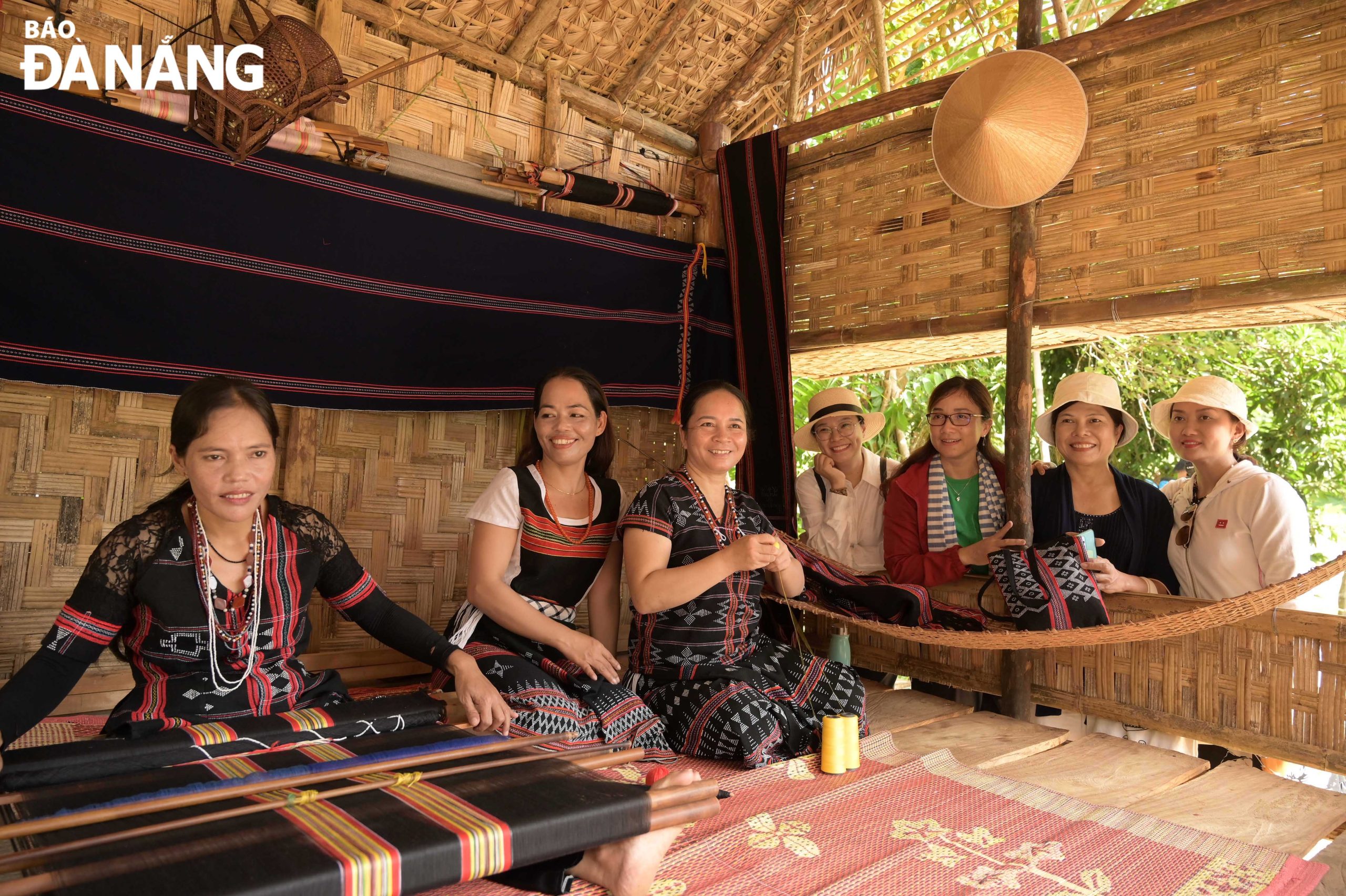 |
Initially, the Cooperative was formed in 2019 by a group of 10 local households, and it operated as a cooperative group that made use of local available natural resources to serve tourists. With the support of domestic experts and scientists, the cooperative group has conducted its business operations to gradually achieve its goal of protecting and restoring natural forests, adopting eco-friendly farming practices, as well as preserving and promoting cultural heritage of the Co Tu people, and creating sustainable livelihoods for cooperative members.
The Hoa Bac Cooperative of Eco-Agriculture and Community-based Tourism which is headquartered in Nam Yen Village officially made its debut in Hoa Vang District in March 2023.
In September and October, the Cooperative participated in the 2023 Contest themed ‘Women start a business while maximizing use of local natural resources’ which was launched by the Viet Nam Women’s Union as a part of a project to develop Cooperatives of Eco-Agriculture and Community-based Tourism in Hoa Bac. In the end, the Cooperative won second prize at the regional level contest and consolation prize at the national-level one.
The award-winning project has helped raise awareness about entrepreneurship as an economic development strategy, arouse desire to start a business, and leverage creativity and passion in business development among the Comperative’s members, and local communities as a whole, especially women in poor mountainous areas like Hoa Bac Commune.
Ms. Do Thi Huyen Tram, the Cooperative’s Director, said that since the first days of its operations, the Cooperative has hoped to become a community-based tourism development model and showcase as a successful rural tourism model, as well as develop Hoa Bac into an attractive destination for domestic and foreign travellers.
The establishment of the Cooperative aims to maximize the role of local community and each resident in promoting the development of tourism in rural areas. Tourism development along with the involvement of local community will result in sustainable development as well as benefit economic, environmental and cultural benefits. Active participation of community in tourism ensures the enrichment of tourism experience as well.
The cooperative now has 19 capital contributors, along with nearly 200 associate members, of whom, 95 are Co Tu women, to offer community-based tours in the rural district.
Mrs. Huynh Thi Xuan, a resident of the Nam Yen Village, has become an official member of the cooperative since its inception in 2019.
Before joining the Cooperative, Mrs. Xuan’s family had mainly focused on farming activities, but her family has grown more fruit trees and fast-growing vegetables on an area of 2,000 square meters to serve tourists since Hoa Bac Commune turned into a tourist attraction.
“Every month I can earn VND 3-5 million from selling vegetables and fruits to visitors, thereby helping my family have a steady income. Tourist groups who take tours offered by the Hoa Bac Cooperative will visit my garden, and pick fruits and vegetables from my garden personally, including jackfruit, grapefruit, guava, banana, squash, spinach, and lettuce. Fruit-picking activities has gradually become an important component of local farmers’ incomes. The membership of the Cooperative ensures a stable source of visitors for me, helping generate a steady income for my family,” Mrs. Xuan said.
The Cooperative mainly focuses on offering tours to school pupils, university students, researchers and tourists to help them explore the culture and traditional crafts of the Co Tu ethnic minority people. Visitors will have a chance to learn about brocade weaving, organic farming, as well as watch the ‘tung tung da da’dance, and enjoy traditional foods. The cooperative is cooperating with its member units to offer community-based trips to Ta Lang and Gian Bi villages to tourists in a bid to allow them to taste the culture and cuisine of the Co Tu people.
The cooperative now owns several homestays, forest gardens, Co Tu ethnic cultural village, Nam O coastal cultural village, an area under cultivation of agricultural products, and a network connecting communities in Central Viet Nam. These things provide the best infrastructure and facilities for the Cooperative to promote its sustainable development.
The Cooperative is among the country’s few successful rural tourism models that are known for its large-scale community network, self-reliance development, and unique programs in the community-based tourism. Hence, it has welcomed many organizations and individuals from other parts of the country to explore programs and activities in the community-based tourism in Hoa Bac Commune.
The cooperative is partnering with many domestic and foreign universities to promote the development of the community-based tourism in a bid to offer unique products and services to visitors, as well as make Hoa Bac more inviting to domestic and foreign tourists .
The number of visitor arrivals to the Cooperative has reached more than 30,000 so far this year.
“Co Tu women has overcome their shyness and timidity, plus the fear of talking to strangers to become more socially confident in order to tell tories of their hometown to visitors, thereby contributing to promoting gender equality and women’s empowerment in Hoa Bac Commune. The process of working together, and interacting with tourists during the community-based tourism programs has helped build a more cohesive community that is willing to share knowledge and emotions with others, as well as to learn valuable experiences from others. The Cooperative is expected to thrive in the future as it not only came from a pure start-up idea but also from the desire of local people,” said Ms. Tram.
Reporting by TRAN TRUC – Translating by H.L
Da Nang Today – baodanang.vn

